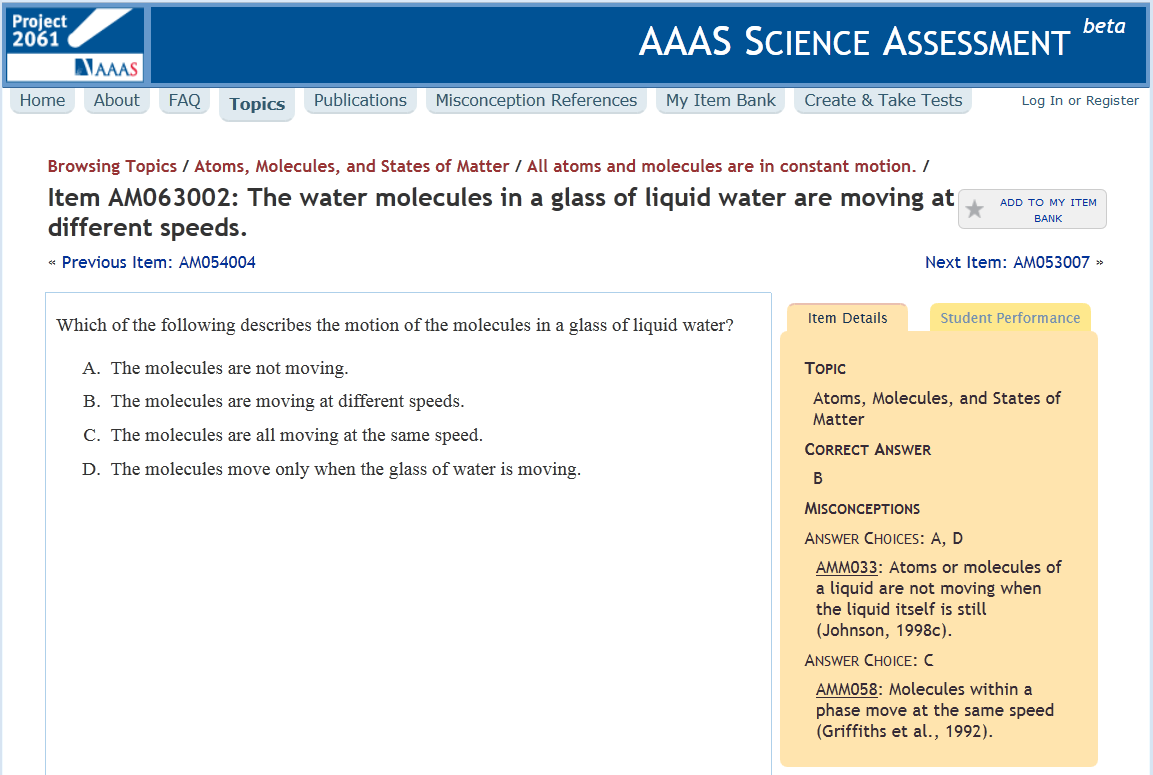Look for a forthcoming post on the broader subject of personalized e-learning. In the meantime, here’s a tip on writing good multiple choice questions:
- target wrong answers to diagnose misconceptions.
Better approaches to adaptive education model the learning objectives that are assessed by questions such as the following from the American Academy for the Advancement of Science which goes the extra mile to also model the misconceptions underlying incorrect answers:



